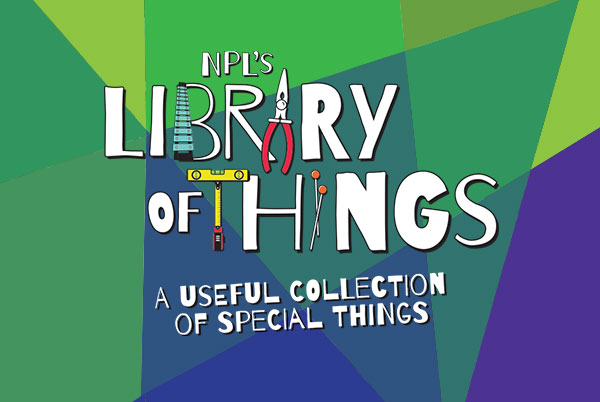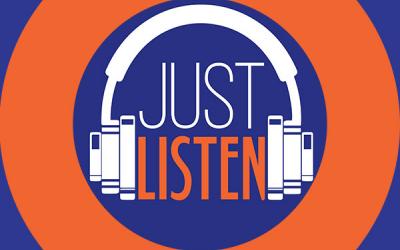
Over 100 years ago, where the current Federal Building on Broadway sits, there used to be a women's college known as the Nashville College for Young Ladies. Unlike some female colleges or seminaries of its time that typically focused on a curriculum that prepared their students for a domestic future as wives and mothers, this Nashville College was different in that it provided a more well-rounded education for its students.
A little history about the college, first of all, it wasn't a college as it is defined today (post-secondary education). It was more like a current academy in that it covered every grade level from Kindergarten to Post-Secondary education, or "collegiate." It was founded by Reverend George W.F. Price in 1880 when he came to Nashville with this plan of opening a women's college. Before its home on Vauxhall Street (now 9th Ave S), it was located on Spruce Street, opened at the own expanse of the president. Thanks to its success in the first year, support was given by the Methodists of Nashville, establishing the institution as a center of Southern Methodism.
The school was moved to its Vauxhall home permanently in November, 1882, with its enrollment and prestige mirroring the rapid physical growth the institution was receiving. On the corner of Vauxhall and Broad streets sat the first of 3 large brick buildings, covering approximately half an acre of ground for the campus.
Between 1881 when it had just recently opened and 1892, the enrollment increased by just over 300%. It defined itself as being the "Leading Southern School for the Advanced Education of Women." At least this is the advertisement found on the backside of the school's monthly newsletter, Our College, that appears to have begun around the beginning of the school year in 1889.
From reading through several of the president's speeches (the school's president), it was easy to infer that receiving an education was an important concept to him - and not just to become more knowledgeable. In one speech that appeared to philosophize education as an institution, Price (the president) argued that he believed that receiving an education is a "two-fold process." It was first, the acquisition of knowledge. And second, the acquistion of culture. Essentially, he believed without one, you cannot have another. Or rather, that without the combination of both, you cannot be a complete person in society.
Yeah, I'd agree that sounds perhaps a little elitist or high-achieving for sure, but pretty realistic for even today's educational standards. I guess you can liken it to the phrase "book smarts vs. street smarts." I don't agree that you have to have both to be successful, but they are both equally important in today's world.
A couple of other cool items found in the small collection are the school's yearbooks. The 1899 yearbook called "The Talisman" is in bad shape unfortunately, but also currently digitized and accessible for viewing in the Library's Digital Collection. It's a lot smaller than today's typical yearbook, but still shows the culture of the school. And what's most unique about the 1899 yearbook is that it is the last ever published by the school since the school closed after commencement of that year. The president of the school had passed away April 7, 1899, so a dedication is included in the yearbook.
The book opens with the "officers of government and instruction," which includes the administration and professors at the school, plus the courses taught. The "Literary Department" is a typical liberal arts assortment of courses including languages, sciences, history, and mathematics. The one course title I found most intriguing yet still suiting for the school was the science class. It's not just science, but "Sciences - Mental, Moral and Physical." Makes me think of Darwin and many other current scientific theories...
And of course, it is still a women's college, so they can't escape having a "domestic department" or an "elocution department." The pupils learned from the books, but were also prepared with a "practical education" that included courses in dressmaking, embroidery, shorthand and typing, and bookkeeping. They received a well-rounded education, indeed.
The Nine Muses of Greek Mythology is also included, featuring the senior class. See the image included of the ladies playing each of their parts.
And what about the "Demoralizing Irregulars"? In one of the photos included, several students are featured eating fruit under the headline of "Demoralizing Irregulars." Correct me if I'm wrong, but from my research, I've found that a woman's etiquette did not include eating in public. Plus the fact that they're eating fruit makes it even more forbidden. I can't think of an equivalent club in a modern yearbook; there's no "delinquents" page or "troublemakers club", so maybe this was just a fun club where they allowed a little more freedom for the students. This is what I'm hoping at least. It is mixed in among several other clubs that the school had including the French Club, Musical History Club, and "Der Deutsche Club" or some word that means "club" in german because I can't read that text.
And lastly, among the diverting clubs they had, I found that they had clubs for a few states. These states include: yours truly, Tennessee (or "The Volunteer State" in the yearbook), the Kentucky Club, the Arkansas Club, and the Texas Club. I'm guessing the states chosen were done based on the states that the students come from, but I'm not sure. There is no explanation. But the state with the most members is the "Volunteer State." Go figure.
Check out the yearbook on the Library's Digital Collection page, as listed above. And be sure to listen to this week's posted podcast, where I joined the crew to talk about this short-lived but unique school. Or click the link here as it is already posted - Popmatic Podcast.




